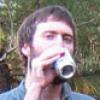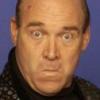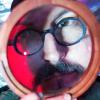Thayer Sarrano
Dark & Dreamy in the Hills

Thayer Sarrano
Athens-based vocalist, guitarist and songwriter Thayer Sarrano likes to maneuver at a slow and steady pace. Only a few years ago, she was a UGA art student with an education in music but realtively little songwriting experience. She refined her technique and songcraft along the way, collaborating in studios and onstage with friends and slowly working up a few sets of her own compositions.
Last week, Sarrano celebrated the independent release of her new solo album,Lift Your Eyes to the Hills, a follow-up to her 2009 debut, King. Drummers Jeremy Wheatley, Seth Hendershot and Jim Wilson laid down the beats, while Zack Hosey, Hank Sullivant and Sarrano handled the guitar parts. Recorded at Chase Park Transduction and at Sarrano’s home with engineer Drew Vandenberg at the helm, Lift Your Eyes to the Hills is misty and atmospheric, with gentle wisps of reverberating guitar, snare drum, pedal steel and piano behind her whispery vocals. It’s moody, morose, mysteriously romantic and, at times, upbeat and spiritual.
Sarrano and guests host a CD-release party at the Caledonia Lounge this Friday. Sarrano is donating proceeds from the show and a portion of album sales to Camp Amped at Nuçi’s Space. She spoke with Flagpole this week about her latest endeavors.
Flagpole: Not long ago, it seemed like you were merely dabbling in music, composing songs and collaborating with friends. But in the last few years, you’ve released albums, earned critical praise, jammed with big-time colleagues and established yourself in Athens as a serious songwriter and bandleader. How did all of that happen?
Thayer Sarrano: Back then, I was more focused on art school, but after moving back to Athens a few years ago, I’ve just made more friends who are musicians and had the time to devote to creating music and being in their bands. Everything I’ve done here is through friends. I know it’s that way for a lot of people here.
FP: Tell us about the process of writing the songs for this new album.
TS: This record was written in spurts throughout early 2010, except the last instrumental track that I did one night in the middle of recording. I knew I had the record complete before I went on a long tour fall of that year, but I just didn’t have time to record it. To me, those songs made sense as one record, so new ones I’ve written since that point are being saved for the next one.
FP: What sort of sound or atmospheric vibe were you aiming for at Chase Park when you started recording?
TS: I was at Chase Park tracking for two days in January 2010. Drew engineered, and he’s very talented and a wonderful friend. We’ve worked together in the past on several things—my first record, and other session work—so it is very comfortable. I went into this record knowing exactly how I wanted it to sound. I’d written the songs with the band, especially drums, in my head. I usually work more openly than this. I like to see what unfolds, but, for some reason this time, I just saw it all, and it had to be that way, as long as it was not being forced.
FP: Were you trying to create a live quality on the main tracks?
TS: I like things to be intimate, so I tracked as live as possible. I think most of the people I work with share this feeling. We tracked the full band songs live in those two days at the studio. Then Drew set up his mobile rig in my old house. I had a giant bedroom with hardwood floors and high ceilings, so I just took my bed out and sang in there. I also did all the organ and “string” parts in there. Hank Sullivant came into the project at this time. He’s a brilliant friend and encourager. He added some nice guitar melodies that made the tracks a lot more interesting, in my opinion. I think Hank, Drew, and I made a great team, especially when we were mixing. I think they are both geniuses.
FP: Did the sessions produce the recordings and overall sounds that you hoped for, or did you end up with a something that took shape naturally or accidentally?
TS: I was very concerned with low-end for this record. I didn’t want a bass guitar, but I wanted some big mysterious thing taking up that space. I had written “cello” parts and organ bass lines. The best accident was when we were about to record this old Hammond, and we found a jack in the speaker we never knew was there. We figured out that it was an output, and when you record out of that speaker hitting the accordion-style chord buttons, it has this insane sub bass, big warm sound. It’s what I had in my head the whole time and didn’t know how to make, so that was a great day.
FP: How do you define your musical style these days?
TS: I guess dark and dreamy… sometimes loud?
FP: Who are the musicians working with you on stage these days, and how did they come to sign on as bandmates?
TS: I’ve never had the exact same lineup for more than one show, but I’d like to. Jeremy Wheatley and Zack Hosey played a lot of shows with me for a while, then early last fall I had a band made from fellow camp counselors at Nuçi’s Space— Dan Nettles, Jojo Glydwell, Seth Hendershot, Allen Owens—and Ted Kuhn. For the CD release show, it’ll be Dave Spivey, Seth Hendershot, Matt StoesseL and Jacob Morris. It’s the first time I’ve ever played with Jacob, and he’s going to play the cello parts!
FP: What’s the story behind the album title, Lift Your Eyes to the Hills?
TS: “Lift your eyes to the hills” is a lyric that shows up in two songs on the record. It’s from a psalm my grandmother and I liked when I was little. After struggling with the title for a long time, one day I realized there was a reason that phrase kept coming up, it kind of sums up my idea. I also like the way it sounds. The hills are up, it’s where better things are.
FP: What’s on the hills, and why is it so important?
TS : The idea that drives me now, and when I wrote this record‚ is the transcendent power of art, especially with abstraction. I am interested in abstraction visually and musically, in particular with the bend—bending notes, blues notes and expanding the familiar. I think that expanding imagination and consciousness is a powerful tool for social change. In no way do I think I am at a table with those artists I respect who’ve done this, but that is where I am trying to go. This record is about a higher plane, being better than we are, hope out of bad times, health, expanding thoughts and generalized heaven. I wanted a title that instantly set the tone that this record isn’t sad. My music is often described as “dark” because of the sounds I like, but it’s not sad, just more serious than lighthearted, I guess.
FP: You’ve performed with an awful of artists in recent years. What did you learn from those experiences, and how did those experiences enhance you own work as a songwriter and musician?
TS: One of the biggest things is that everyone I play with is so comfortable on stage. It is so natural for them, all of them. I’ve always been pretty shy in the past, but constantly being up there with people like that helps a lot. And, of course, the more you play the better you get. I’ve enjoyed the diversity of styles I’ve gotten to play with different bands over the last couple of years. Another thing is gear. I rarely sit down to read a book on gear or engineering, but I learn a lot from the people I play with. Some Of Montreal members taught me how to use logic recording software while I was on tour, and that was a huge impact on this record. I was able to make sounds I wanted, even for demoing, and some of the recordings I made were transferred to the album. I think it’s really important to surround yourself in the good company of inspired people that make your world bigger, and you don’t have to try very hard to find that here.
FP: What’s the plan for the set at the Caledonia on Mar. 30? Any surprises?
TS: I have this one thing I’m trying to do, but I don’t know if it will work yet. Tia Madre is opening. It’s is Walker Howle from Dead Confederate. His songs are gorgeous. Then it’s the Wydells. Bo Beddingfield and the Wydells have always been one of my favorite bands here. I’ve always wanted to play a show with them, so I’m really happy they can do it.
FP: Tell us about what drew you to work with Camp Amped at Nuçi’s Space and why that project is so important to you these days.
TS: Camp Amped is the best thing in the world. I’m lucky that I’ve gotten to be a counselor for the last four years. You know when you can just tell you are in the right place doing the right thing? Like a click? It’s so fun to work with the campers. They are so unique and talented. We work with them in bands where they write songs, cover songs, communicate, and compromise, etc. There could be a diverse band of gentle singer-songwriters and metal shredders who will work together and end up writing a funk song or covering the Ramones, for example. And one of my favorite things is to watch people come out of their shells an come alive. The counselors are some of my favorite people in the world as well. Everyone is hilarious.
FP: What is your main artistic goal for 2012?
TS: To make everything in my head come out of it before the world ends. I have a new record ready to record as soon as I can afford it. I also have some plans to collaborate on some recordings with some friends of mine. I’m currently working on an instrumental EP, and I’m trying to make some movies with shadows. I’d like to tour more, and I’d like to get better at pedal steel so that I never let down Matt Hudgins and His Shithot Country Band.
More by T. Ballard Lesemann
-

The Busy, Productive Hiatus of Je Suis France
Friday, Oct. 20 @ Caledonia Lounge
-

The Producers, Casper and the Cookies
Thursday, June 9 @ The Foundry
-

The Claypool Lennon Delirium, Chicano Batman
Tuesday, June 7 @ Georgia Theatre









comments